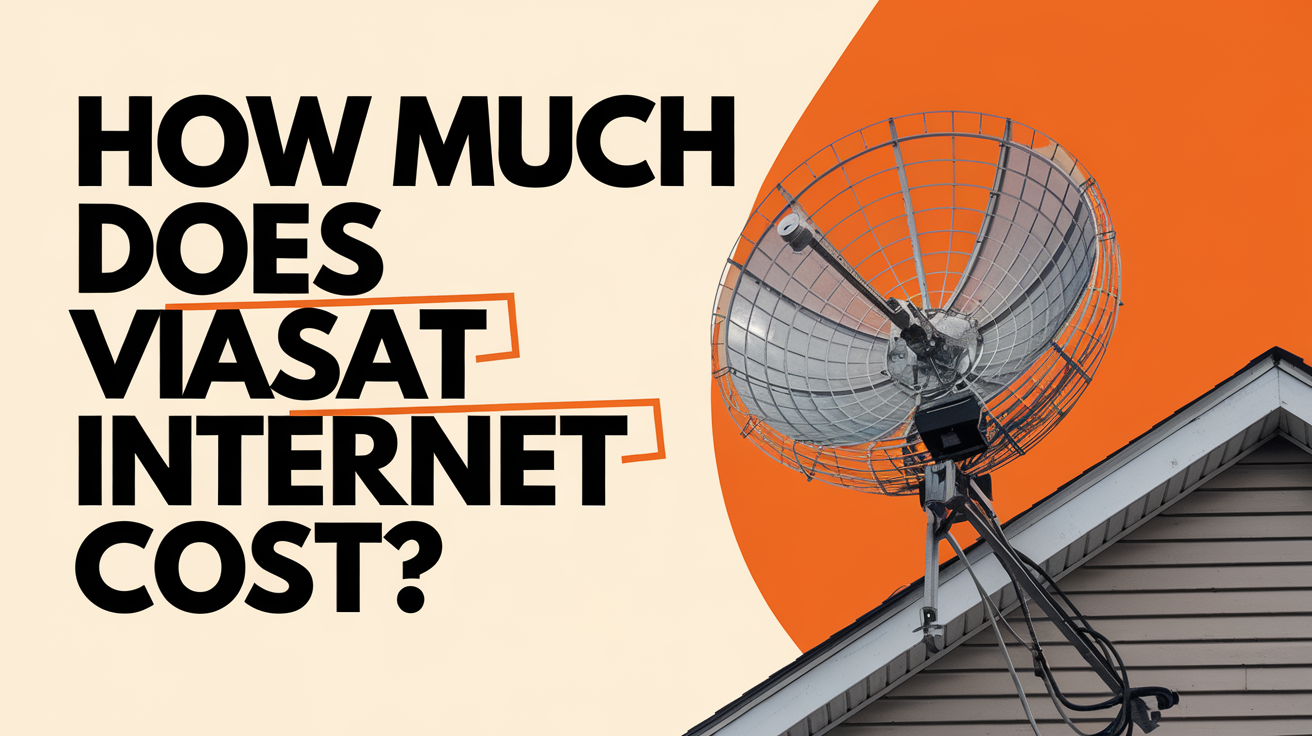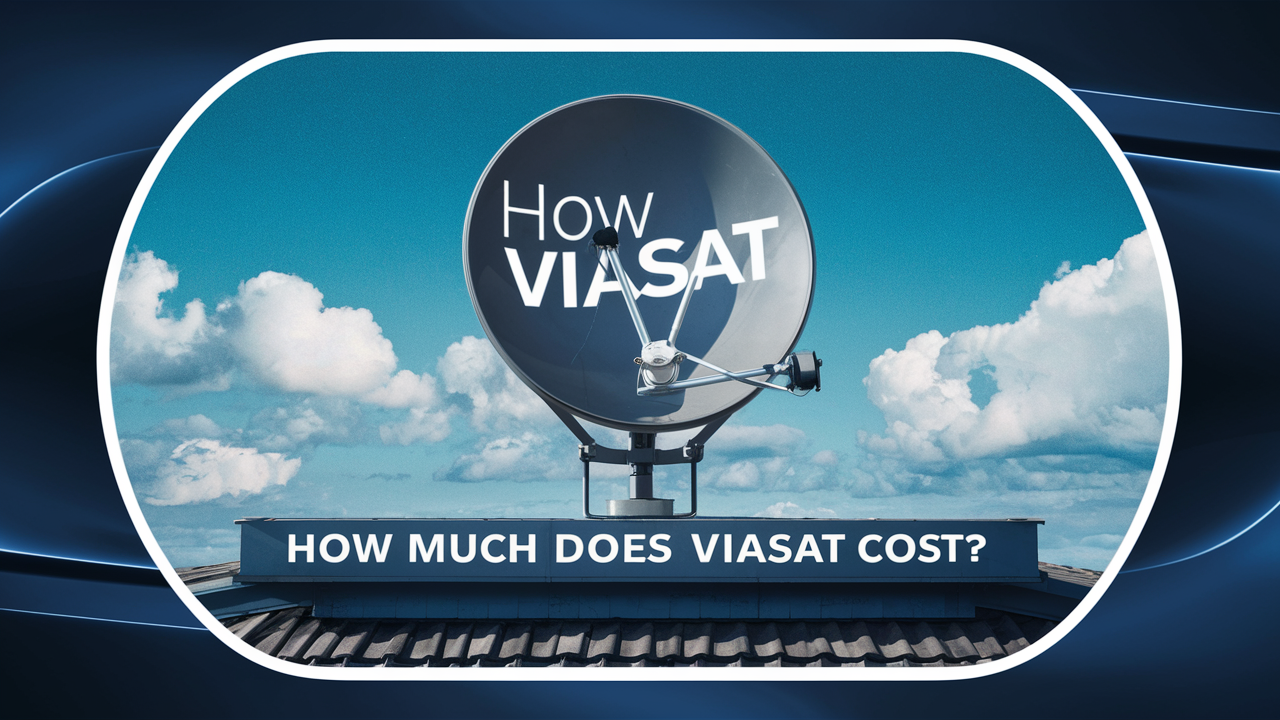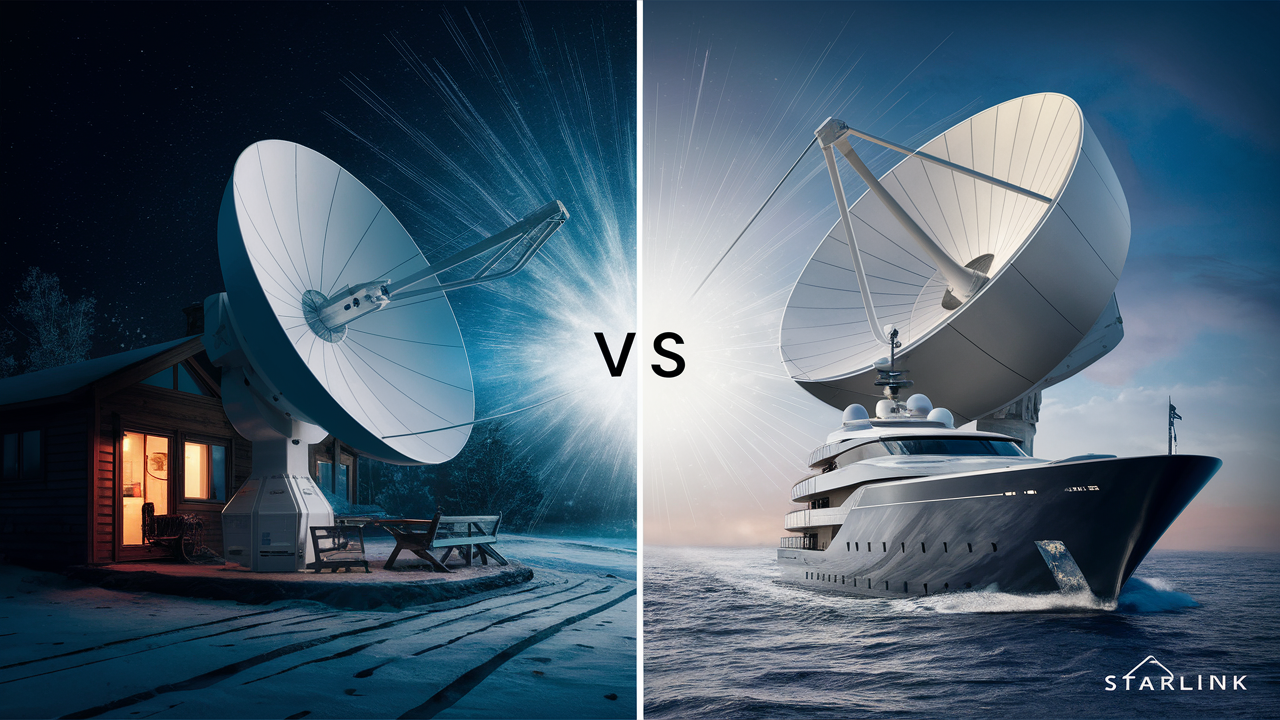-
Posted on: 03 Jul 2024

-
Why is my Viasat not working in the rain?
Isn’t it annoying to have a Viasat internet connection that degrades each time it rains, meaning that the internet slows or disconnects? Due to the fact that Viasat is an internet service that uses a satellite connection, this meant that it was much more affected by bad weather than cable or fibre connections available on the ground. However, there are some technical factors as to why rain presents a problem, especially for those who are using satellite internet.
How Satellite Internet Works
The reason why rain poses a problem for the Viasat signal is a little bit complicated, and that is why it is first necessary to understand how satellite internet works. The Viasat system consists of three main components: The Viasat system consists of three main components:
1. Satellite: Viasat has several technologically advanced satellites orbiting around the earth in a geosynchronous orbit that is about 22,000 miles above the surface of the earth. These satellites download internet signals from Viasat ground stations and then relay that internet data back to consumers.
2. The Outdoor Antenna: Customers possess an outdoor dish antenna in their home/office that directly links to the Viasat satellite to obtain internet signals.
3. Modem type: An indoor modem is used to connect to the outdoor Viasat antenna by means of a coaxial cable. The modem demodulates the signal received from the satellite and transforms it into WiFi internet for the devices within the house.
The most important facts to highlight here are the fact that your home antenna is required to have a direct and clean view of the Viasat satellite, which is situated 22 000 miles high in space. Satellite connections with the Internet, like in this case, are affected by weather like rain.
In this paper, how rain hinders the provision of internet via satellite is discussed.
Rain can cause issues for satellite internet in a few different ways:Rain can cause issues for satellite internet in a few different ways:
1. Signal Interference (Weakness/Interference): The television signal can be compromised by the intensity of the rain or the thickness of the storm clouds to the extent that the radio signals getting to and from the satellite might be weakened or fully blocked. The droplets literally block the signal pathway or interfere with the direct radio link.
2. Signal Absorption: Raindrops also hinder the operation of satellite radio by absorbing some of the energy of the signals, thus diminishing their strength.
3. Scattering & Reflection: Rather than directly reaching your home antenna, rain also distorts the line of sight by scattering the satellite signals in different directions or even reflecting the signals off the raindrop.
These all together bring down the amount of usable signal that gets from the Viasat satellites via clouds and rain into your house. A weaker signal causes slower connection speeds or dropped connections.
This is even truer when it comes to downpours, which bring even more problems with them due to the increased amount of precipitation.
The amount of rain falling makes a significant difference in how severely it will disrupt your satellite internet connection. The amount of rain falling makes a significant difference in how severely it will disrupt your satellite internet connection.
Light Rain/Drizzle: Very occasionally, people might report a slight slowdown of the website or some lag when there is very light rainfall. However, Viasat should remain generally fine on average, especially closer to the rain event starting time before high rain replenishment.
Moderate/Heavy Rain: This type of weather condition only allows lower speeds and experiences short interruptions of the provided services. The quality of video streaming and web browsing may further deteriorate and lag much worse as compared to normal. But you can still browse the internet essentially in its most rudimentary form, in most cases.
Heavy Rainstorms: Occasionally, the rain droplets in the air become so dense that they saturate and interfere with the reception to the extent that you are cut off completely until the downpour dies off.
It also needs to be emphasized that the location and position of the antenna also influence the quality of signals received.
Here we have the geographical location of where you live in relation to the nearest ground gateway station. Viasat has an impact on rain fade. However, people at the outer rim of the satellite’s coverage area will be affected sooner in the event of storms.
Antennas must be correctly located, and a lot of interference between the dish and the sky should be avoided, such as large trees that may hinder the passage of the signals through rain without much interference. And that is how the open sky of reception is seen from the south, but other than that, the weather is very important for the reception of Viasat.
Mitigating rain interruptions that can affect Viasat
While there is no way to make Viasat completely immune from rain loss, below are some coping strategies:While there is no way to make Viasat completely immune from rain loss, below are some coping strategies:
Stay Close to the Modem: During some rainstorms, it is wise to sit close to the interior Viasat WiFi modem so as to get the best of signal strength at the vicinity of the antenna before amplifiers dampen the signal further in your house.
Avoid High Data Usage: When using a data connection in the rain, watch fewer high-definition videos or engage in other high-usage activities, such as downloading large files and using Skype, than lighter uses, such as web browsing and sending emails.
Wait It Out: If you lose internet connectivity for a short while due to heavy rainfall or any other temporary reason, then you may simply have to wait for half an hour rather than get frustrated over the issue. This normally recovers very fast once the busiest part of the rush is over.
Be Prepared for Outages: Keep extra internet sources, such as cellular hotspot and community WiFi places you can use that do not depend on satellite internet, in case the adverse weather lasts long and Viasat becomes unavailable.
Rain fade is normal in satellite internet systems such as Viasat, so consolidating your online activity in clear weather and having other means can help reduce interference from occasional storms. And in most of the other days between the rains, you will still be able to have reliable and fast internet beaming down from space.





